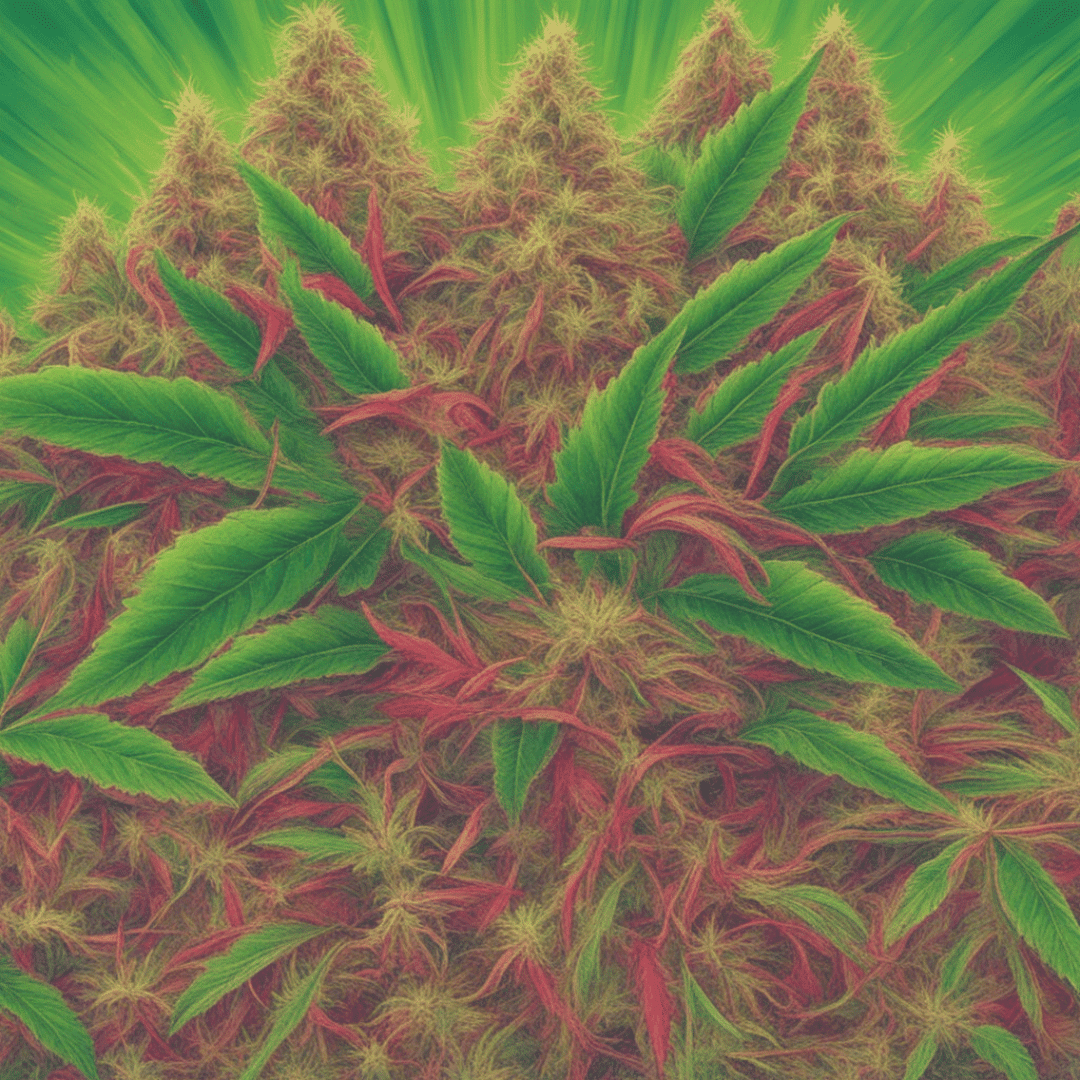The Benefits and Uses of Non-Euphoric Marijuana: Exploring the Therapeutic Potential
Written by Trevor

Introduction: Understanding Non-Euphoric Marijuana and Its Components
As the medical marijuana industry continues to evolve, there is a growing interest in non-euphoric marijuana and its various components. Moreover, non-euphoric marijuana refers to strains of cannabis that contain low levels of THC (tetrahydrocannabinol), the psychoactive compound responsible for the “high” (click here if you interested in THC) associated with recreational use. Instead, these strains are rich in CBD (cannabidiol), a non-psychoactive compound known for its potential therapeutic benefits.
Non-euphoric marijuana, also known as CBD-dominant strains or low-THC cannabis, has gained popularity among individuals seeking medicinal benefits without experiencing the intoxicating effects typically associated with traditional marijuana use. This has led to increased research and exploration into the potential therapeutic applications of non-psychoactive cannabis.
In this section, we will delve deeper into understanding non-euphoric marijuana and its components. We will explore the differences between CBD-dominant strains and high-THC varieties, discuss their potential medicinal uses, and shed light on the emerging market for non-euphoric cannabis products.
Whether you are a medical professional looking to expand your knowledge or an individual curious about alternative forms of medicine, this section aims to provide valuable insights into the world of non-euphoric marijuana. So let’s embark on this journey together as we uncover the potential benefits and applications of non-psychoactive cannabis.
The Therapeutic Properties of CBD-dominant Marijuana
The potential therapeutic properties of non-euphoric marijuana, specifically CBD-dominant strains, have gained significant attention recently. Also, CBD, or cannabidiol, is a compound found in cannabis that offers a range of potential health benefits without the psychoactive effects associated with THC.
One of the key benefits of CBD is its potential for pain management. Many individuals suffering from chronic pain have found relief through the use of non-euphoric marijuana. CBD interacts with receptors in the body’s endocannabinoid system, helping to reduce inflammation and alleviate discomfort.
Moreover, low-THC cannabis has shown promise in providing anxiety relief. Unlike traditional marijuana strains high in THC, which can sometimes exacerbate anxiety symptoms, CBD-dominant strains have been found to have anxiolytic properties. This makes them a viable option for individuals seeking natural alternatives to manage their anxiety.
In addition to pain and anxiety management, CBD-dominant strains have also demonstrated effectiveness in treating epilepsy. Moreover, numerous studies have highlighted the anticonvulsant properties of CBD and its potential as an adjunct therapy for individuals with treatment-resistant forms of epilepsy.
It is important to note that while non-euphoric marijuana holds great therapeutic potential, it should always be used under medical supervision and in accordance with local laws and regulations. As research continues to unfold on the medical uses of CBD and low-THC cannabis, it is clear that these substances offer promising avenues for improving health and well-being.
The Role of Non-Euphoric Marijuana in Alternative Medicine
In recent years, there has been a growing interest in exploring the role of non-euphoric marijuana in alternative medicine. Cannabis-based therapies have gained recognition for their potential benefits in holistic healing practices. Specifically, the use of CBD-dominant strains, which contain low levels of THC (the psychoactive compound), has sparked curiosity among individuals seeking natural remedies.
The incorporation of low-THC cannabis into wellness routines is believed to offer a range of potential therapeutic effects without inducing the typical “high” associated with marijuana use. Now this makes it an appealing option for those who are looking for alternative approaches to managing various health conditions.
From reducing anxiety and promoting relaxation to relieving pain and inflammation, non-euphoric marijuana has shown promise in addressing a wide array of ailments. While more research is conducted and anecdotal evidence continues to emerge, it becomes evident that this form of cannabis holds great potential as a complementary tool in holistic healing.
It’s important to note that while non-euphoric marijuana may offer numerous benefits, it should always be approached with caution and under the guidance of healthcare professionals. Also, each individual’s response to cannabis-based therapies can vary, and it is crucial to find the right dosage and strain that suits one’s specific needs.
As our understanding of non-euphoric marijuana expands, so does its potential applications within alternative medicine. With its natural properties and ability to provide relief without impairing cognitive function, this form of cannabis can play an integral role in enhancing overall well-being for those seeking holistic approaches to their health journey.
CBD-dominant for Mental Health and Well-being
In recent years, there has been a growing interest in exploring the potential of non-euphoric marijuana for mental health and well-being. Specifically, researchers and individuals alike have been investigating the use of non-psychoactive cannabis strains to address various mental health concerns such as anxiety, stress, and depression.
One area where CBD-dominant marijuana has shown promise is in the treatment of anxiety. CBD-dominant strains have gained attention for their potential to alleviate symptoms associated with anxiety disorders. While these strains contain low levels of THC, the psychoactive compound found in traditional marijuana, making them a suitable option for individuals who want to manage their anxiety without experiencing the intoxicating effects.
Furthermore, CBD-dominant strains have also been explored for their stress-relieving properties. While many individuals find that these strains help them relax and unwind after a long day, providing a sense of calm without impairing cognitive function or inducing psychoactive effects.
Additionally, low-THC marijuana has shown potential in managing symptoms of depression. While further research is needed to fully understand its efficacy in this regard, initial studies suggest that certain components within non-euphoric marijuana may have antidepressant properties.
It’s important to note that while non-euphoric marijuana may offer benefits for mental health and well-being, it should always be used under proper medical guidance. Moreover, consulting with healthcare professionals who specialize in cannabis medicine can help ensure safe and effective usage based on individual needs.
As our understanding of non-euphoric marijuana continues to evolve, it presents an exciting avenue for exploring alternative approaches to mental health care. By harnessing the therapeutic potential of CBD-dominant strains and low-THC varieties, individuals may find new options for managing anxiety, stress relief, and potentially even alleviating symptoms associated with depression.
Conclusion: Embracing the Potential Benefits of Non-Euphoric Marijuana for a Healthier Lifestyle
As the world becomes more open to the potential benefits of marijuana, there is a growing interest in exploring non-euphoric marijuana products. While these products, often high in CBD and low in THC, offer a range of potential therapeutic benefits without the psychoactive effects commonly associated with traditional marijuana use.
However, before diving into the world of non-euphoric marijuana products, it’s crucial to understand the legal landscape surrounding their use. Furthermore, laws regarding non-euphoric marijuana can vary greatly from region to region and even country to country. It’s essential to familiarize yourself with local regulations to ensure compliance and avoid any legal complications.
Accessibility is another key consideration when exploring non-euphoric marijuana products. While CBD-dominant products have gained popularity in recent years, their availability may still be limited depending on where you reside. Some regions have embraced these products and made them readily accessible through dispensaries or online platforms. In contrast, others may have stricter regulations or limited access due to ongoing legal debates.
When seeking out reputable sources for low-THC cannabis products, it’s crucial to do thorough research. Moreover, look for companies that prioritize transparency and provide third-party lab testing results for their products. This ensures that you are getting a reliable and safe product that meets regulatory standards.
In conclusion, exploring the legal status and availability of non-euphoric marijuana products requires careful consideration of local laws and accessibility options. By staying informed and finding reputable sources for these products, individuals can navigate this emerging market safely and responsibly.
Enjoy This Article?
If you enjoyed this article and want to check out our Instagram page for a better look at all products. Sign up for our newsletter and follow our Twitter Page for a more posts like this and exclusive deals








